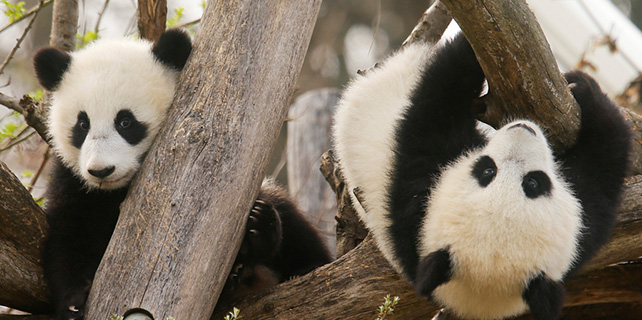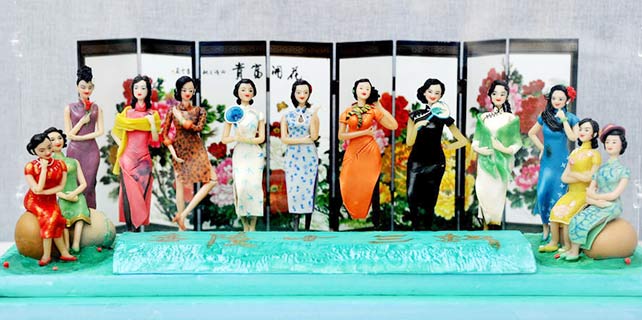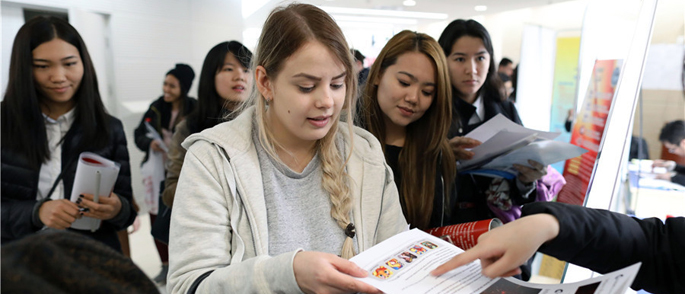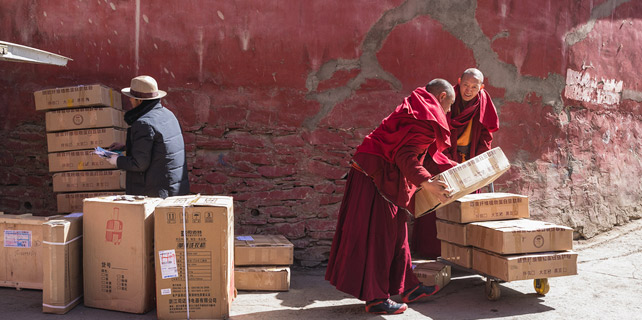Trade show: Labor costs still factor
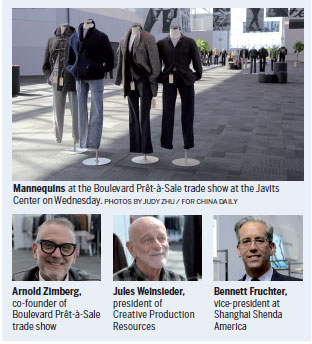
Although labor costs in China have been rising, and some Chinese textile companies have set up operations in the US, manufacturers are more likely to look elsewhere in Asia to maintain their margins.
Arnold Zimberg, the co-founder of the menswear trade show Boulevard Prêt-à-Sale at New York's Javits Center organized by Messe Frankfurt, is an industry veteran who has worked with brands like Givenchy and Emilio Pucci.
He said that though there may be a few Chinese textile companies that are bringing some operations to the US, he has "no idea how they're going to do this" in a sustainable way.
"They're still working with American labels, and you still have the wage differences - how are they going to compete?" he said. "Are you telling me that [Chinese clothing manufacturer] TAL is going to start making shirts in North Carolina and compete with their production in China? I've been doing this 44 years - never, because it's not feasible!"
"We don't see the US as being an opportunity for manufacturing," said Bennett Fruchter, vice-president of product development at Shanghai Shenda America (SSA), a US subsidiary under parent company Shangtex, one of the largest clothing manufacturers in China.
"Prices are increasing in China, [so] we have been for the past year looking at alternate countries for manufacturing. We do recognize the need for diversification for sourcing in our supply chain, so we've looked at Vietnam, Cambodia, Bangladesh, and those are some of the countries that we've been looking at," he said.
But he doesn't see doing business in the US as a "short-term goal that could be something we would explore in the future".
SSA began operating in the US about a decade ago and sources, manufactures and delivers clothing primarily for US clients, including American Eagle, Shop NBC, and warehouse club Costco, which sells clothing under its in-house label Kirkland.
"We're looking at different acquisition options, so that's not something we would rule out, but based on the current price compression we're feeling in the market, we believe that we still need to be offshore on most of our programs, or all of our programs," said Fruchter, who spoke to China Daily on Tuesday.
China's Keer Group opened a $218 million textile factory in South Carolina in 2015 due to increasing costs of textile production in China and ever-more competitive labor costs in the US, particularly in counties in the US South once known for manufacturing.
Jules Weinsieder, president of Creative Production Resources, said that while manufacturing costs in China are going up, the more direct impact is that manufacturing in China will focus on high-end goods and specialty apparel.
He said Chinese investors would be interested in buying existing US operations and running them, but US workers can't compete on garment quality.
"The only thing the US can compete with is very simple garments like T-shirts, dresses, pants", but beyond that, China and other markets like Vietnam and Bangladesh have the market cornered, he said.
amyhe@chinadailyusa.com







